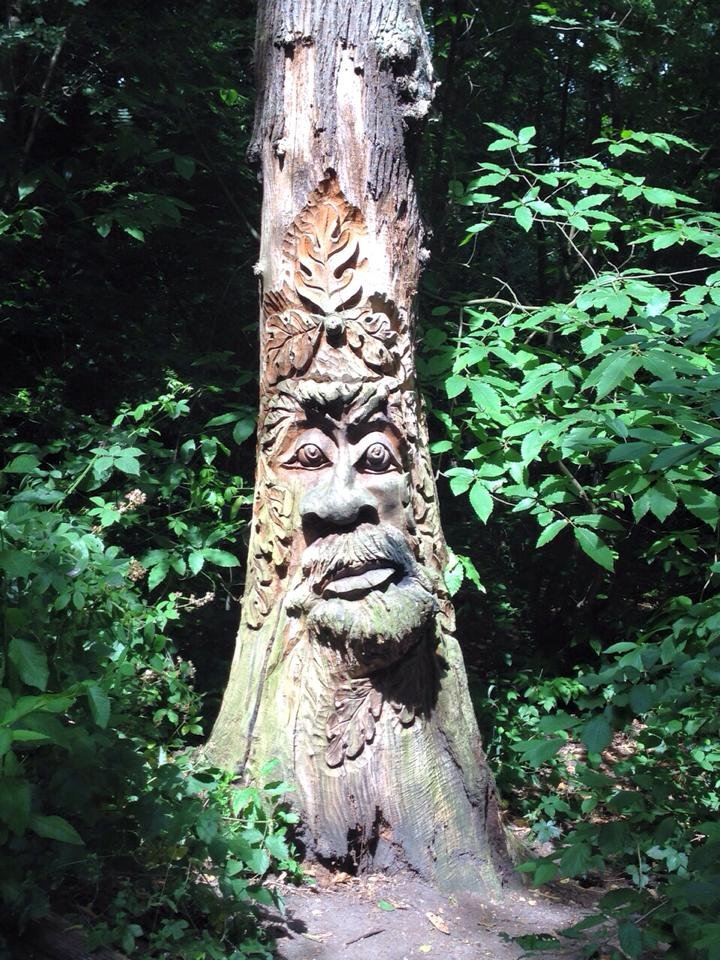
What is folklore?
Ever since I started mentioning to people that I’ve started studying for an MA in folklore studies I’ve been met with many a blank look and puzzled stare. Reactions range from just total incomprehension ‘What’s that?’ , via ‘Oh like woo-woo magic?’, through to ‘Isn’t that just things that aren’t true?’…
So what is folklore, and why is it worth studying? Folklorists themselves seem to find a ‘one true definition’ elusive, since the topic is by its very nature somewhat variable and hard to pin down. However at its root, we are talking of the lore, or knowledge held in common, of the ‘folk’. Which begs the question, who are these ‘folk’?
The term ‘folk-lore’ was coined in 1846, and in the 18th and 19th centuries in England really seemed to be a pursuit of old, white, middle class men (and occasionally women, but mostly beardy men it seems), who were interested in trying to preserve the oral traditions of the people they thought of as ‘rural peasants’ as they, rather romantically, thought these held residues or survivals of ancient traditions that were being lost with literacy and industrialisation. This led to a rather ‘outside looking in’ approach, among other problems. However, this needn’t put us off the topic entirely, after all the ideas of biology and psychology in that period were also often coloured by the mores of the time, and we don’t, for example, discount the entire science of psychology just because we now know that Freud was a massive sexist.
So nowadays we would consider the ‘folk’ in question to be any community of people, not just of an underclass of rural poor.
The Oxford dictionary defines folklore as ‘The traditional beliefs, customs and stories of a community, passed through the generations by word of mouth‘, and Merriam-Webster as ‘ Traditional customs, tales, sayings, dances or art forms preserved among a people’
In a more all-encompassing picture, the American Folklore Society says: Every group with a sense of its own identity shares, as a central part of that identity, folk traditions–the things that people traditionally believe (planting practices, family traditions, and other elements of worldview), do (dance, make music, sew clothing), know (how to build an irrigation dam, how to nurse an ailment, how to prepare barbecue), make (architecture, art, craft), and say (personal experience stories, riddles, song lyrics). [1]
So we can look at folklore as a body of vibrant, organic, grass-roots, from the ground-up culture, linking the members of a community within and between generations, and subject to change, variation and re-interpretation as it moves between people and groups.

Why is it worth studying?
There are many reasons to study folklore, firstly because its endless variety is fascinating in itself; it’s ghost stories around a campfire; university students passing down urban legends; indigenous Australian basket weaving; couples jumping a broom after a handfasting; protest songs; ribbons tied around trees for luck; morris dancers; Bridie dolls… and so on and so on…
And then there’s what it can tell us about ourselves, why do we have these traditions? Why are they so enduring? William Wilson said ‘Surely no other discipline is more concerned with linking us to the cultural heritage from the past than is folklore; no other discipline is more concerned with revealing the interrelationships of different cultural expressions than is folklore; and no other discipline is so concerned …with discovering what it is to be human. It is this attempt to discover the basis of our common humanity, the imperatives of our human existence, that puts folklore study at the very center of humanistic study‘ [1]
In its ability to bring together a community, folklore is hard to overestimate, the vibrant traditions of wassailing the apple trees in the West country; annually rolling cheeses down a hill in Gloucester; parading the Jack-in-the Green through the streets in Hastings and the rhyming battles with the skeletal horse Mari Lwyd in Wales, are events that bring people together in the spirit of celebration. And they can be celebrated on many levels, some of those at the Wassail are no doubt neo-Pagans who believe in blessing the ground to ensure a good harvest, but others may just be there for a good day out and a glass of cider. And it’s wonderful that everyone can take from it what works for them. It is often disputed whether these customs are of as ancient an origin as its sometimes claimed, but for me the beauty of it is that it doesn’t matter. What matters is what the community gains from it.

Far from being old-fashioned or backward thinking, folklore also has a proud history of grass-roots activism, for example the excellent show ‘Three Acres and a Cow’ tours the UK telling the story of the history of land rights and protest in folk song [2], and the anti-sweatshop Nike Blanket petition, combining the folkloric craft of quilting with activism, involved crafters from 40 countries and every state in the USA knitting or crocheting squares for a huge quilt and signing a petition urging Nike to adopt fair labor practices. [3]
Elizabeth Vega, a craftivist working with the Black Lives Matter movement says of working together with art and craft “The beauty of art and craftivism and this kind of resistance work is that oftentimes we are fighting against things—we’re constantly fighting against oppression, against racism, against sexism—but the art reminds us of what we’re fighting for,” she says. “And that’s connection, and beauty, and humanity, and the ability to create and dream and collaborate.” [4]
And I think that sums up folklore as a whole.

[1] American Folklore Society : https://www.afsnet.org/page/DefiningFolklore
[2] https://www.facebook.com/threeacresandacow/
[3] https://www.yesmagazine.org/issue/storytelling/2014/07/12/these-craftivists-are-making-a-statement-with-knitting/
[4] https://www.yesmagazine.org/social-justice/2018/12/18/when-crafts-become-activism-a-more-beautiful-movement/








Love it, Amelie, really looking forward to reading more about your studies! 💚